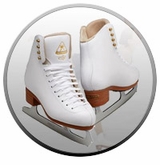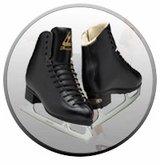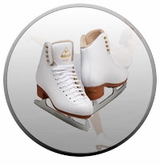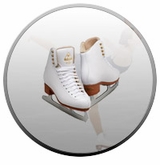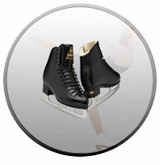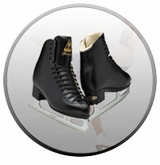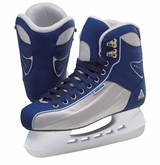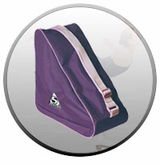History of Ice Skating
The early history of ice skating is a bit debatable, but some believe ice skating had its beginnings in Scandinavia sometime between 3000 and 1000 B.C.. I realize that 2000 years is a significant time gap between theories, but depending on whom you read, these are the two timeframes most often given. The first recorded mention of ice skating is found in a biography of Thomas Becket (London born monk) written by his former clerk William Fitzstephen around 1180.
It is believed that early ice skaters in the Northern European countries used ice skating as transportation rather than for recreation, exercise or as a competitive sport. Archaeological evidence supports this theory with findings of ice skates in Scandinavia, Germany, the Netherlands and other northern European countries. By the 1600s, the Dutch commonly used ice skating as means of transportation between villages.
Ice skating was introduced in England sometime in the 17th century, possibly by Dutch sailors. The English did not have the same need or opportunity to use ice skating for travel, so they mostly ice skated on frozen ponds. This led the English to slightly modify the blade to allow for quick turns and circles. This modification likely resulted from the pond environment (small round skating area), and led to something we now know as figure skating (see History of Figure Skating). European colonists or the English military personnel likely introduced ice skating to America and Canada in the mid 1700s.
The First Ice Skates
Historians are not in full agreement when it comes to when the first ice skates were invented. Again, most believe that the first pair of ice skates date back sometime between 3000 and 1000 B.C., and were invented by the Scandinavians. Regardless of the exact time ice skates were invented, most everyone agrees that they were made from animal bones taken from horses, cattle, elk, oxen and other animals. Skaters tied these bones to the bottom of a pair of boots or shoes and glided across iced over lakes and ponds.
Many historians believe that sometime in the 14th Century, the Dutch started using wooden platform skates with flatiron bottom runners. These ice skates were said to have been attached to the skater's shoes or boots with leather straps or clamps. Around 1500, it is believed that the Dutch added a narrow metal, double edged blade which greatly aided the skaterís ability to glide across the ice. The figure skate itself was dramatically improved in 1848 when E.W. Bushnell of Philadelphia developed an all-steel skate, replacing the wooden footplate. Mr. Bushnellís skates were instrumental in increasing the popularity of ice skating. Following this, the next significant changes to the ice skates came sometime after 1900. The main developments in the figure skate were the addition of the toe pick, and the closed-toe blade of one-piece steel, which made the skate lighter and stronger than any previous skate.
|
Skate Equipment >
Ice Skating Equip
Ice Skating Info
.
